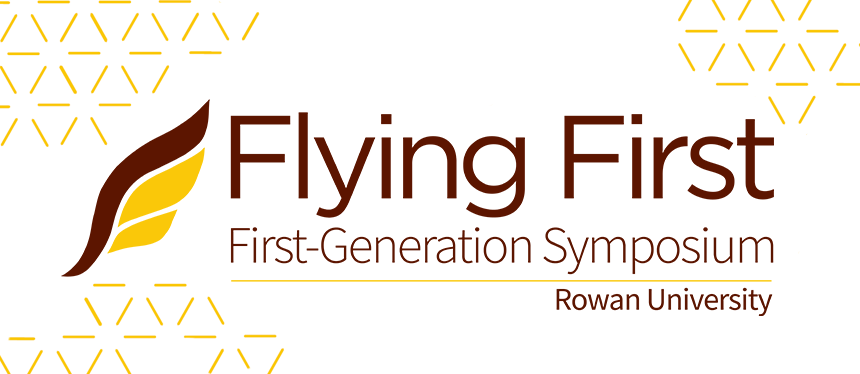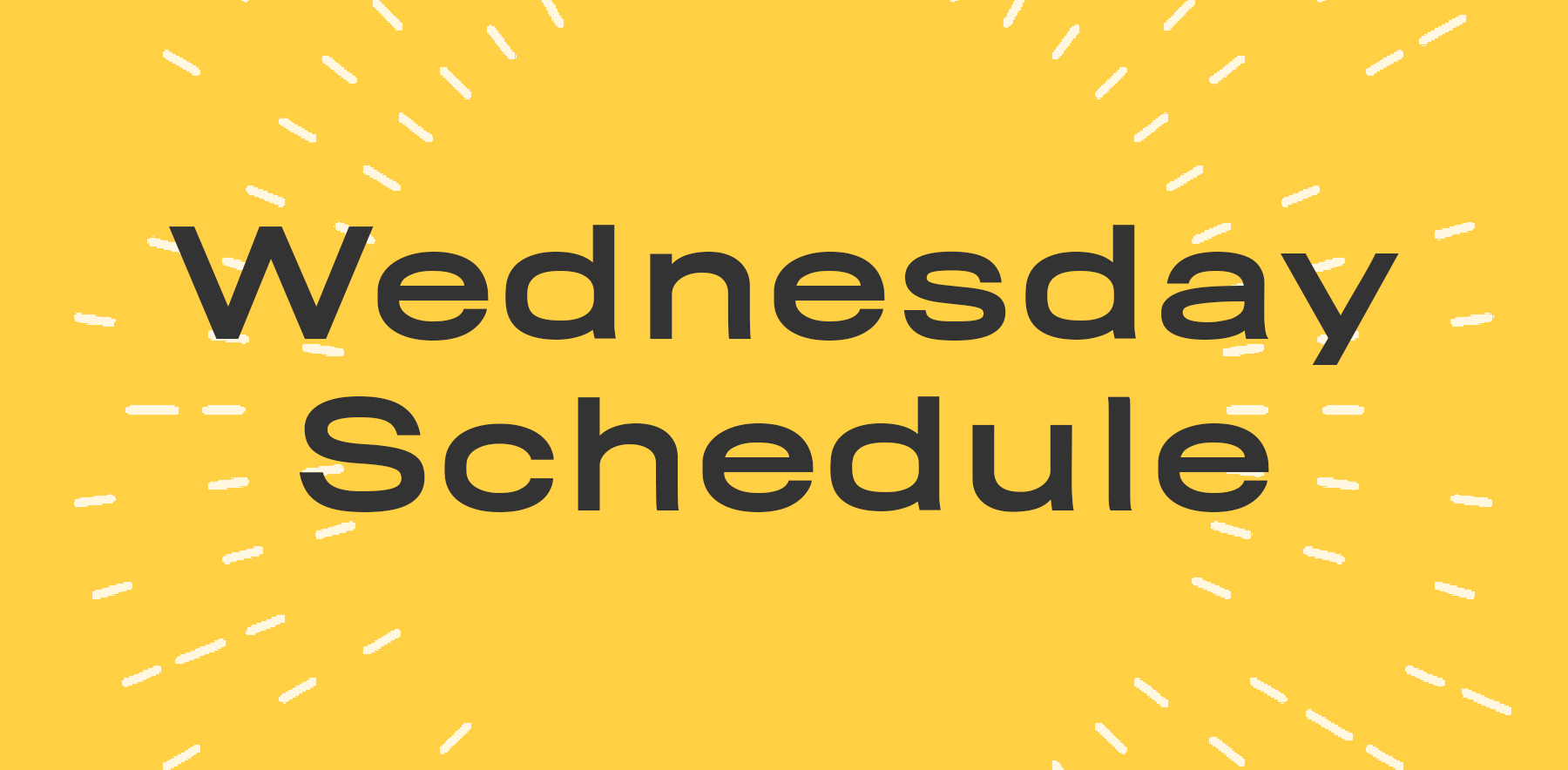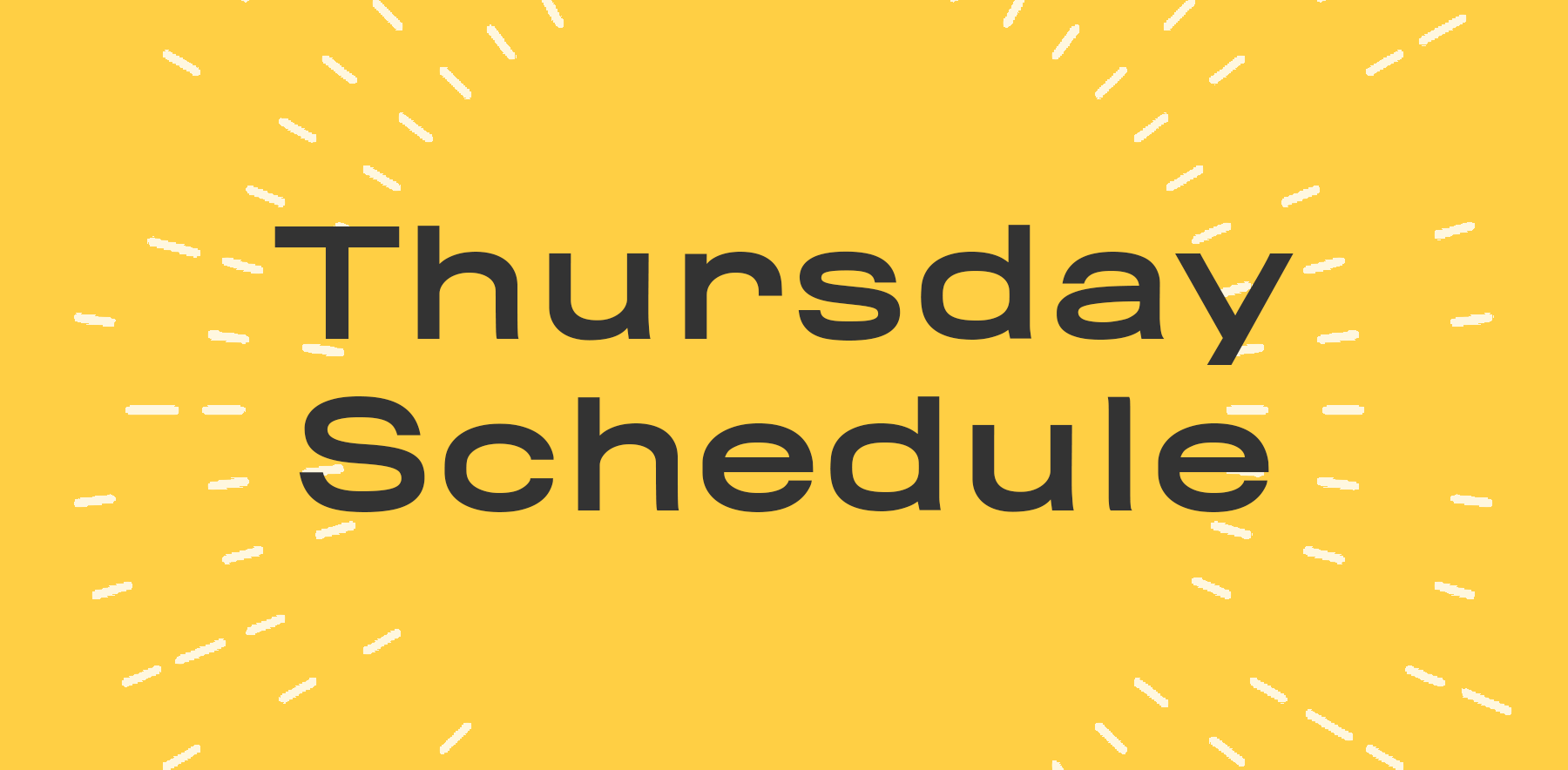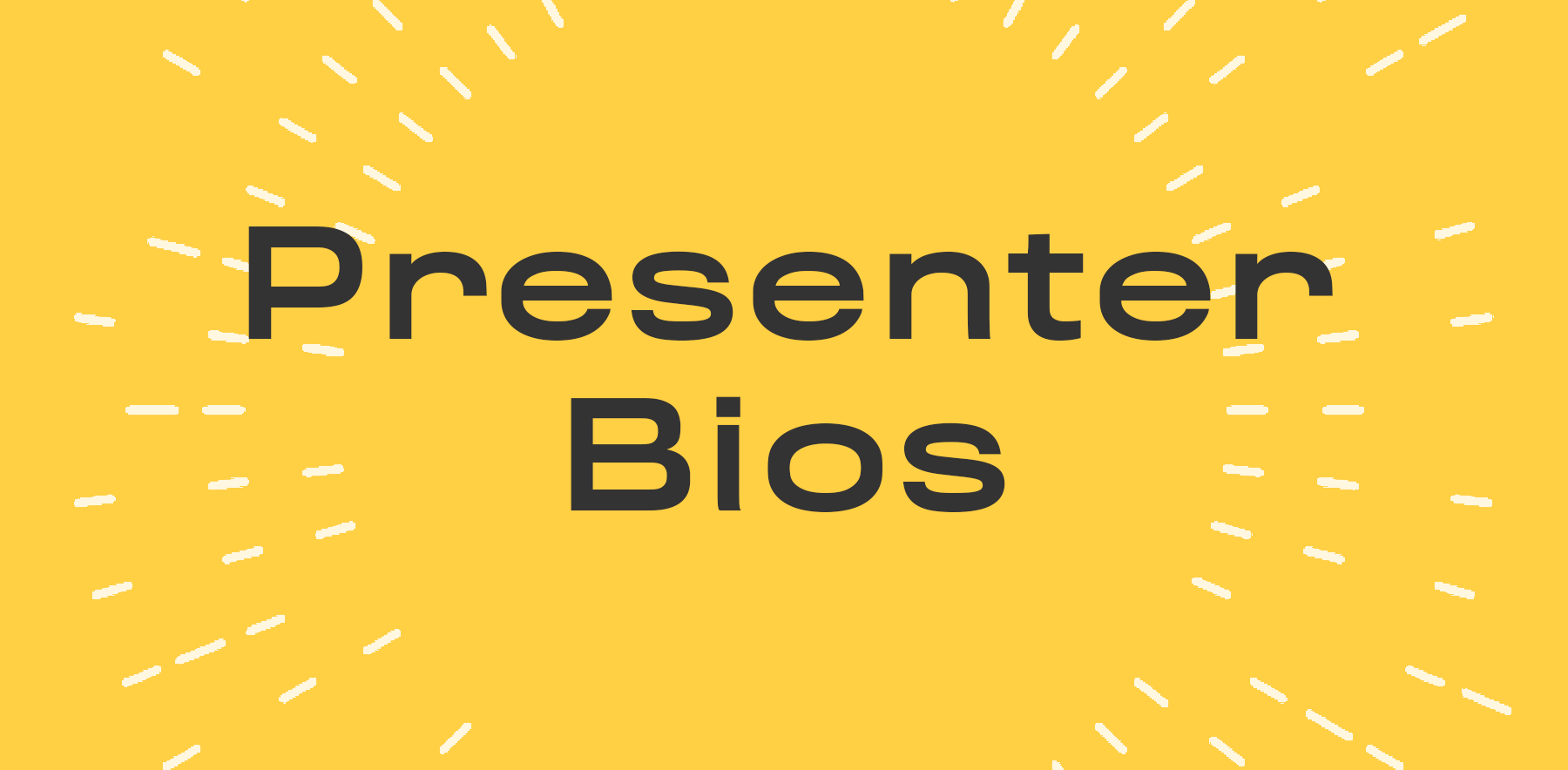Thursday
Thursday
5th Annual First-Generation Symposium
Reimagining Our Success: The Reshaping of First-Gen Futures
Wednesday, February 2 - Thursday, February 3, 2022
All sessions hosted virtually
Thursday Event Agenda & Session Options
9:30am-10:15am
Building Your New Normal: True 'Productivity' is Not About Doing More
Akua Nyame-Mensah
No one teaches you how to make the most of your time, yet most of us consider time to be the most precious asset we have. A first-generation student has many demands on their time, and deciding what to do with their time can be daunting. Feelings of guilt and fear of missing out can distract first-generation students from their paths. Beyond determining what to do with our time, we have various gadgets and tools vying for our attention and are now entering the third year of a 'new normal.'
In this workshop, Akua breaks down the relationship between productivity, resilience, and mindfulness. Participants are encouraged to reflect, brainstorm and prioritize initiatives. She also challenges participants to assign tasks and build internal and external accountability measures to increase 'productivity.' Participants will leave with a new perspective on approaching prioritization and the strategies to create more time in their professional and personal lives.
9:30am-10:30am*
Leveling UP: Addressing the Difficult Realities First-Generation College Students Face
Dyron Corley, Ed.D. and Dana Kemery, Ed.D.
COVID-19 continues to negatively impact our first-generation students' academic and holistic success. The factors that made the college experience difficult before COVID-19 have been exasperated. Despite the challenges many of our first-generation students faced during COVID, they were able to find a way to persevere and “level up.” While faculty and student support professionals should celebrate their resolve and commitment, we must not forget about the students who wanted to succeed but didn’t. First-gen students may face a different reality and often fall through the cracks. The types of support they need may not be available at the institution. To address these needs, institutions must “level up” and provide broad-based student-centered support and infrastructure.
During this presentation, participants will explore the unique realities first-generation students have faced during COVID in and outside of the classroom, assess the current metrics that are used to determine what “success” looks like, and discuss ways they can “level up” their pedagogy, programming and services to support their student population.
*Also offered on Wednesday.
9:30am-10:45am
First-gen Faculty Panel
Angela Cirucci, Ph.D., Robert Eisberg, M.A., Michael Grove, Ph.D., Brooke Hoffman, Ph.D. (moderator), Peter Rattigan, Ph.D.
Please join our Rowan University first-generation faculty panel to discuss the challenges that accompany being first-generation as both educators and students. This year’s theme, “Reimagining Our Success: The Reshaping of First-Gen Futures,” addresses the many ways we might reshape our society to create even more opportunities for the first-gen communities we serve. During this panel, faculty will share their experiences and insight into supporting first-generation students in and out of the classroom, concluding with audience questions and answers.
10:45am-11:00am
Break
11:00am-11:30am*
Resilience and Variation Among First-gen Students During COVID-19
Harriet Hartman, Ph.D.
Based on research carried out during the COVID-19 pandemic, the impact of the pandemic on first-gen students will be presented in terms of resilience under the financial, social, and emotional stresses of the pandemic. Attention will be paid to differences (or lack thereof) among first-gen students based on gender, race/ethnicity, and social class. First-gen survey respondents’ suggestions for administrative/faculty policies are presented. Implications for university policies that can better support first-gen students under situations of stress like this will be discussed with the audience.
*Also offered on Wednesday.
11:00am-11:30am*
Collectively Breaking Down Imposter Syndrome Through a DEI Lens
Mariana Cardenas
This presentation unpacks the ways in which Du Bois’ double consciousness and a Psychological lens of Labeling Theory and Imposter Syndrome can be overcome when we understand the ways in which these phenomena are socially and culturally constructed. For those of us who are first-generation, it is not uncommon to experience and internalize imposter syndrome (Peteet et al., 2015). In addition to this real phenomenon, Du Bois’ theory of double-consciousness is also present and presents a solid foundation for understanding the underlying systemic issues and barriers that first-generation students face. In addition to this real phenomenon, Du Bois’ theory of double-consciousness is also present and presents a solid foundation for understanding the underlying systemic issues and barriers that first-generation students face. For example, people with close proximity to wealth and whiteness do not experience the oppressions of double consciousness because they are already part of the dominant culture that would seek to shape how they should understand themselves. Through careful consideration of the deep reaching ways in which systemic oppression creates the experience of imposter syndrome, we can begin to unpack, unlearn, and even subvert white, Euro-centric and upper-class values.
*Also offered on Wednesday.
11:00am-12:00pm*
How We Built This: Strategies to Build a Coalition of support for First-Generation Students
Penny McPherson-Myers, Ed.D. and Amy Ruymann, M.S.
In 2017, the co-presenters formed a university-wide first-generation task force to celebrate and support first-generation students. In just one year and with no budget, the task force led a transformative initiative engaging 50+ staff and faculty from all over the university. The main accelerator that increased the urgency of this campus wide cultural shift were the student voices. First-generation students who shared stories of resilience, survivor guilt and the pressure to be pioneers were the voices that motivated our campus to work together across functional responsibilities on this initiative.The first-gen initiative called Flying First has grown exponentially as more partners have joined in. Through our annual First-Gen Symposium sponsored by Rowan University, we have expanded our impact to institutions across New Jersey to increase awareness and to celebrate first-gen resilience.
During this session the presenters will share their experience and provide a step-by-step guide for creating or accelerating first-generation student support on campus without a budget, using John Kotter’s 8-Step Model of Change. Higher education professionals looking to build a coalition of support for first-generation students will leave this presentation with specific strategies for success.
*Also offered on Wednesday
11:00am-12:15pm
First-Generation Students in Medicine Panel
Stephen Acheampong, Michael Curry, Lindsey DeJean, Gabrielle Montlouis, Yvonne Ortiz (moderator), and Mathew Pekora
Please join us for the First Gen Students In Medicine Panel. This year’s theme, “Reimagining Our Success: The Reshaping of First-Gen Futures,” addresses the many ways we might reshape our society to create even more opportunities for the first-gen communities we serve. This unique cross campus panel will include students from Rowan School of Osteopathic Medicine, Cooper Medical School of Rowan University, and Rowan University Glassboro. During this panel, they will share insights gained from the pandemic and stories of resilience and success, concluding with audience questions and answers.
12:15pm-12:45pm
Break
12:45pm-1:15pm*
Reimagining STEM in the First-Generation (Access, Opportunities, and Community)
Michael Brown, Ed.D. and Shareyna James, MBA
The pandemic continues to teach us life lessons about health, education, and psychology while it also draws light on the disparities between generations, communities, and access to opportunities. What used to be deemed as an option is now necessary. Access to STEM and related resources. First generation students, while facing many other challenges daily, now have had to overcome additional obstacles that no one could have foreseen, including: Access to technology (computers, Wi-Fi), preparation (navigating academia, educational preparation for college coursework), social isolation (especially URM students – racial discrimination, insecurities about belonging), community support (on demand counselors, safe space to discuss challenges), financial resources (lack of materials/tools to succeed outside of the classroom).
As a community, now that we have this information, it is mandatory that we collectively put programs/resources in place to continue to support our students. Re-imagining what support measures are in place, regardless of where our students are attending class is critical, if we want to see any movement at shrinking the educational/social gap within our communities. These types of programs include: off-hours programs that offer one on one support to students and their families, dedicated team of professionals focusing on listening to the needs of families and engaging them in ongoing conversations, while offering support, mechanisms for students to “reach out” regardless of their learning location, emergency funds, dedicated to these populations which provide some financial relief community collaboration is no longer an option, but necessary if we want to see our students no longer be left behind. STEM programs that are supported and funded, year-round, providing additional support to students in these areas.
*Also offered on Wednesday.
12:45pm-1:15pm
Reshaping "DREAMers" Expectations on Education
David Guadarrama and Victoria Murray
DREAMer refers to an undocumented immigrant who entered this country illegally as a minor. The vast majority of these minors accompanied their parents/guardians on this journey. They did not make the intentional decision to break the law. As a result, they were eligible for unique immigration status under the DACA (Deferred Action for Childhood Arrivals) program in 2012, which made it easier for recipients to become productive members of their communities without the fear of deportation. However, the program does not provide legal residency or a pathway towards citizenship for the recipients. DACA recipients are in an awkward "limbo" state with immigration and the help they can receive from the federal and state government. The result is that this community faces many unique obstacles when trying to pursue higher education. Recipients are not eligible for federal financial aid, welfare, or federal loans. These barriers can be discouraging for DACA recipients. Only 13% of DACA-eligible students are enrolled in graduate or professional schools.
In this presentation, I want to help DREAMers and the community understand resources available to further their educations. I will be focusing on options available to them in terms of school choices that will accept their immigration statuses, financial aid resources, and possible solutions of how we as a society can help elevate this community.
12:45pm-1:30pm
Reimaging Career Values and Decision-making During the Great Resignation
Lisa Cardello, Ed.S. and Rosaria Pipitone
Navigating the career planning process can be complicated and overwhelming for many students, especially first-generation students who may not have the network to help them navigate the ever-changing world of work. Our services are rooted in helping all students understand their options as career service professionals. The process begins with understanding your interests and values. Many refer to workplace values, or career values are the driving force behind why individuals choose and remain in a career. Knowing your career values is an instrumental tool in helping students select a career path. In this presentation, you will learn the importance of career values and identify your career values and how they play a role in your unique career journey.
12:45pm-1:45pm*
Navigating the College Landscape: The Lived Experiences of First-Generation College Students with Disabilities
John Woodruff, M.S.
Rowan University has over 2,900 students with disabilities registered with Accessibility Services. Of that total, over 200 students also self-identified as first-generation. The transition to college for students with disabilities can be challenging and overwhelming. Many students are still developing their self-advocacy skills. Add on to those challenges also being first-generation and the leap to college can be prove quite daunting. This presentation is an opportunity for these students to share their lived experiences with students and higher education practitioners to better understand the unique challenges throughout their college career. One way to ease the transition to college is to build a support system and sense of belonging. Specific supports that connect first generation students with disabilities with key resources to put them on a platform for success.
This panel presentation of first-generation, college students with disabilities will share their lived experiences and demonstrate the importance of connecting with disability and first generation affinity groups. Attendees will gain an understanding of the intersection of disability and first generation and the layered challenges this presents to students as they transition to college. Attendees will gain an understanding of the similar challenges first generation college students who have disabilities encounter in their transition to college. Attendees will learn about the opportunities these organizations provide for first generation college students with disabilities in empowering them in finding their voice and develop leadership and mentoring roles within the campus community. Attendees will learn about strategies and best practices to support first generation college students with disabilities.
*Also offered on Wednesday.
1:45pm-2:15pm
Break
2:15pm-3:00pm*
Black, First-Generation, and Low Income: Navigating Dual Pandemics in an Age of COVID 19 and Police Brutality
Ariel Davis, M.S.
Students who live at the intersection of Blackness, first-generation in college status, and socioeconomic disadvantage are attempting to navigate a deadly worldwide pandemic, in the medical sense, and state-sanctioned violence at the hands of police and white supremacists in the physical/mental well-being sense. While variants surge and trials forge on, these students are estranged from a physical campus they might not have felt attachment to, shouldering childcare, distance learning, work related and technological challenges on their own and sustaining continued fear, rage and sadness at the constant barrage of traumatic headlines of death and violence towards Black bodies.
This workshop serves as a research-based call-to-action, a guided self-assessment of the ways campuses have, are and will support their Black, first-gen, and low-income students. The presentation will also include tangible action items and next steps.
*Also offered on Wednesday.
2:15pm-3:15pm
How the Pandemic has Encouraged and Deterred First-generation, Immigrant-Origin College Students as Future Educators
Brooke Hoffman, Ph.D. and Catherine Michener, Ph.D.
Drs. Brooke Hoffman and Catherine Michener coordinate Rowan University’s graduate and undergraduate ESL Certificate and Bilingual Endorsement programs. In these roles, they work closely with a number of first-generation students who are bilingual/multilingual with English as their second or additional language. Most of these students were classified as ESL students or participated in bilingual or dual-language programs as K-12 students and are leveraging their cultural and linguistic resources (Athanases, Banes, & Wong, 2015) to pursue the ESL Certificate and/or Bilingual Endorsement. They are pursuing careers in teaching, a field dominated by white, monolingual, English-speaking women.
Drs. Hoffman and Michener will facilitate a session in which these students share their personal narratives and thoughts on how the pandemic has encouraged and deterred them as (future) educators. Prioritizing the voices of Rowan University’s own first-generation, immigrant-origin students, Drs. Hoffman and Michener will reference relevant research. Although research focuses on barriers these students face, our session will emphasize how they “mobilize the resources that they possess in negotiating their success to get to and complete college” (Varghese & Fuentes, 2020, p. 2). As (future) educators themselves, these students have valuable insights for educators in PK-12 and higher education settings.
2:15pm-3:15pm*
Teaching to Their Cultural Strengths: Empowering First-Generation Students
Ellen Wasserman and Krista Quinn
For first-generation students, many of whom persist at low rates, changes due to the pandemic including remote learning, reduced social opportunities, and lack of in-person academic support has increased the need for culturally responsive teaching practices (Gay, 2018). This year, first-generation students who experienced their junior and senior years of high school remotely may be especially challenged in navigating college course expectations. Supportive instruction that recognizes and adjusts to the cultural strengths of diverse students can make an important difference in academic achievement, motivation, and persistence for first-generation students (Chavez & Longerbeam, 2016; McCallen & Johnson, 2020).
In this workshop, faculty, staff, and administrators will learn about cultural strengths pedagogy and teaching strategies that empower students. The presenters will share experiences from the past two years and ask participants to contribute their own observations of areas where first-generation students have struggled during the pandemic. Engage in a self-reflection activity regarding cultural strengths, and explore strategies for developing an understanding, empathetic, flexible class climate without lowering standards. Discuss specific practices such as scaffolding, multidimensional assessments, and shared responsibility for learning that utilize the cultural strengths of diverse students.
*Also offered on Wednesday.
2:15pm-3:15pm
GA's Giving Back: The Benefits and Challenges of Graduate Assistant First-gen Student Support
Arianna Hoffman and Claude Taylor
This interactive session will feature the experiences and reflections of a current graduate assistant with First to Fly: First Generation at Monmouth. First to Fly represents a set of student-centered campus initiatives and programs designed to offer academic, social, and personal support for Monmouth University students who identify as a first-generation. The central objective of these initiatives is to help first-generation students identify, develop, and maintain the competencies they may need to persist to graduation. The work of GAs in first-generation student initiatives can be a significant factor in the success of efforts to bridge gaps, model behavior and build community for both undergraduate and graduate students who identify as first-gen. First to Fly wants to help students thrive at Monmouth, not just survive and graduate assistants can play a vital role to achieve this goal.
Participants in this session are encouraged to contribute their questions, comments, and experiences to this virtual dialogue about best practices in leveraging the assets of graduate students and the campus community in first-generation student success programs.
3:15pm-3:20pm
Break
3:20pm-3:30pm
Closing Remarks
Join us as we close out the 2022 5th annual First-generation Symposium.








